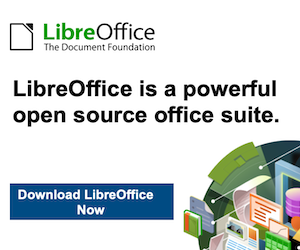PHP – Hypertext Preprocessor development
– began in 1994 when the developer Rasmus Lerdorf, with regard to PHP (Hypertext Preprocessor), wrote a series of Common Gateway Interface (CGI) Perl scripts, which he used to maintain his personal homepage. The tools performed tasks such as displaying his résumé and recording his web traffic.
He rewrote these scripts in C for performance reasons, extending them to add the ability to work with web forms and to communicate with databases and called this implementation “Personal Home Page/Forms Interpreter” or PHP/FI.
PHP/FI could be used to build simple, dynamic web applications. Lerdorf initially announced the release of PHP/FI as “Personal Home Page Tools (PHP Tools) version 1.0” publicly to accelerate bug location and improve the code, on the comp.infosystems.www.authoring.cgi Usenet discussion group on June 8, 1995.
This release already had the basic functionality that PHP has today. This included Perl-like variables, form handling, and the ability to embed HTML. The syntax was similar to Perl but was more limited and simpler, although less consistent. A development team began to form and, after months of work and beta testing, officially released PHP/FI 2 in November 1997.
Zeev Suraski and Andi Gutmans
– rewrote the parser in 1997 and formed the base of PHP 3, changing the language’s name to the recursive acronym PHP: Hypertext Preprocessor. Afterward, public testing of PHP 3 began, and the official launch came in June 1998. Suraski and Gutmans then started a new rewrite of PHP’s core, producing the Zend Engine in 1999. They also founded Zend Technologies in Ramat Gan, Israel.
On May 22, 2000, PHP 4, powered by the Zend Engine 1.0, was released. As of August 2008 this branch is up to version 4.4.9. PHP 4 is no longer under development nor will any security updates be released.
On July 13, 2004
– PHP 5 was released, powered by the new Zend Engine II. PHP 5 included new features such as improved support for object-oriented programming, the PHP Data Objects (PDO) extension (which defines a lightweight and consistent interface for accessing databases), and numerous performance enhancements. In 2008 PHP 5 became the only stable version under development. Late static binding had been missing from PHP and was added in version 5.3.
A new major version has been under development alongside PHP 5 for several years. This version was originally planned to be released as PHP 6 as a result of its significant changes, which included plans for full Unicode support. However, Unicode support took developers much longer to implement than originally thought, and the decision was made in March 2010 to move the project to a branch, with features still under development moved to trunk.
Changes in the new PHP code
– include the removal of register_globals, magic quotes, and safe mode. The reason for the removals was that register_globals had opened security holes by intentionally allowing runtime data injection, and the use of magic quotes had an unpredictable nature. Instead, to escape characters, magic quotes may be replaced with the addslashes() function, or more appropriately an escape mechanism specific to the database vendor itself like mysql_real_escape_string() for MySQL. Functions that will be removed in future versions and have been deprecated in PHP 5.3 will produce a warning if used.
Many high-profile open-source projects ceased to support PHP 4 in new code as of February 5, 2008, because of the GoPHP5 initiative, provided by a consortium of PHP developers promoting the transition from PHP 4 to PHP 5.
PHP interpreters are available on both 32-bit and 64-bit operating systems, but on Microsoft Windows the only official distribution is a 32-bit implementation, requiring Windows 32-bit compatibility mode while using Internet Information Services (IIS) on a 64-bit Windows platform. Experimental 64-bit versions of PHP 5.3.0 were briefly available for Microsoft Windows, but have since been removed.
Learn more about PHP – What can PHP do?






